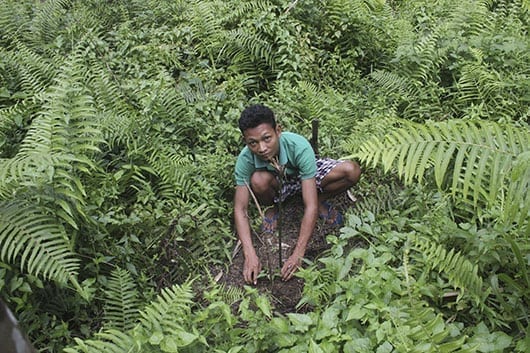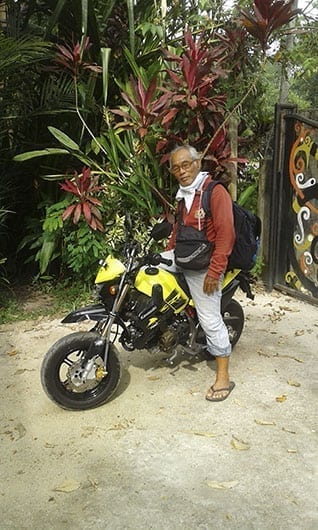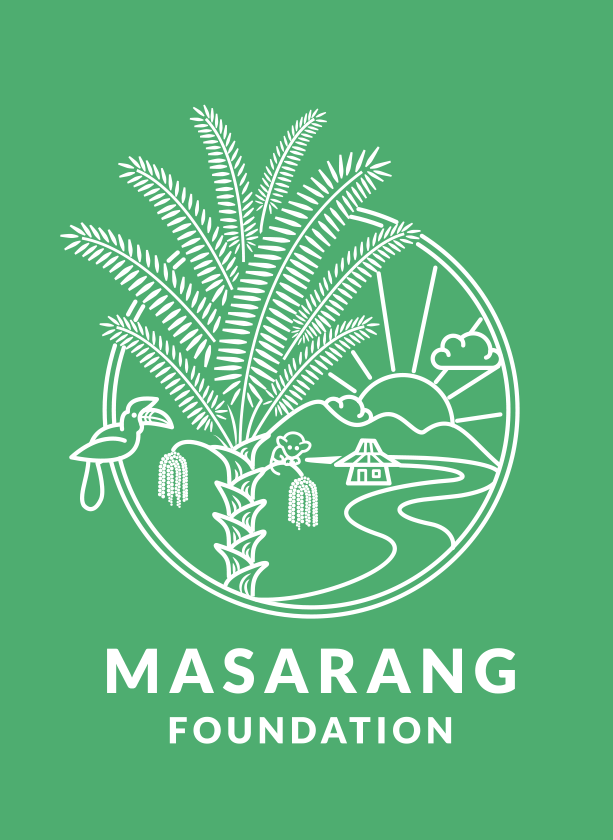Through the support of one of Masarang’s valued sponsors, Masarang started a reforestation project in the surroundings of the beautiful Saran Mountain. Masarang is already working in this region for a few years now to protect the Saran Mountain and its surroundings against the rapid expansion of oil palm plantations in the region.

Reforestation against deforestation and against palm oil
Masarang started the reforestation program in 2016 and in the first year, 220 farmers from 7 villages applied for the program. The goal was to plant 200 trees per person in an area of around 1 hectare. The farmers were asked to collect seeds from the surrounding forests of local fruit tree species such as rambutan, durian, jengkol, tengkawang (illipe), jackfruit and various mango species, and were paid a small compensation for each tree planted. The farmers were also provided with high quality sugar palms ‘plus trees’ from Tomohon. The farmers planted the trees mostly on former rice plantations. By planting trees of economic value, there is a higher chance that they will not cut it down in the future. Still, shifting cultivation is their common way of agriculture, so we combine the tree planting program with training how to make compost and biochar and practicing sustainable agriculture. With that knowledge, the farmers will be able to make their rice field at the same location year after year. This way we aim to restore the forests, one tree at a time.

Empowering local people
We are proud to mention that this project, from proposal until end report, was completely coordinated by a local man named Dr. Piet Herman Abik. This 68-year-old former regional representative of West Kalimantan province for the central government, still very healthy and active, is very dedicated to help his fellow Dayak people to safeguard their forests. Of the 220 farmers that applied for the program, 146 (66%) completed the target of planting 200 trees. Although we would have hoped for a higher percentage, we are still quite happy with this result as the local conditions are quite challenging for the farmers, for example because of the bad infrastructure. Still, more than 30.000 trees were planted during this project, absorbing almost 665 tons of CO2 yearly (comparable with the yearly emission of 246 cars). Lessons were learned and strategies adjusted to make sure we get a higher percentage next year. The program runs until the end of 2020.

Training and education
Next to tree planting, Masarang is following a few different strategies to help the local people to safeguard their precious forests; such as training of farmers how to tap sugar palms and how to make palm sugar in areas where sugar palms already grow in the wild and providing alternatives for income by building sugar production units for palm sugar and buying the palm sugar from the farmers, as well as illipe nuts (Tengkawang nut) to produce illipe butter. Providing scholarships to children in these villages is another strategy that will be added this year. Sometimes farmers sell their land to companies to pay for their children’s school fees, so by providing scholarships, this can be prevented.
Cooperation leads to success, what next?
The reforestation work did not go unnoticed. Upcoming a German internet company who invests 80% of its profit in tree planting programs around the world, has joined forces with Masarang, to plant even more trees in 2017. More news about that cooperation to follow soon…
